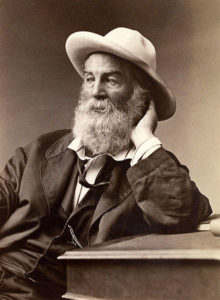Are we unified? Or are we a multiplicity?
It is the greatest mistake to think that man is always one and the same. A man is never the same for long. He is continually changing. He seldom remains the same even for half an hour. ~ G. I. Gurdjieff, writing on the multiplicity of man
When people first encounter Gurdjieff’s system, the idea that man is many I’s, that he is not one person, sounds absurd. But if we were not changing, we would be in a worse position, fixed in a state that prevents growth. This would mean that essence has begun to die; it stops learning, for learning requires change and growth.
How can we understand the idea that we are many I’s?
The idea can be most easily observed when you need to make a decision. Let’s say a friend calls you and wants meet for coffee, but you just got home from work and you’re tired. However, you like this friend and enjoy their company. So the decision boils down to this: are you willing to go back out in order to have an emotional experience? Normally, you think that you weigh the pros and the cons of the situation and come to considered choice, but what really happens is that there are two parts in you and they debate the situation. Your body is tired and wants to stay home, but your emotional center would like to have an evening out. These two parts formulate their arguments, and eventually one wins out. Lacking will, experiencing multiplicity, we have no steward for our actions.
Of course, the consequences are more substantial for more important decisions, for example, whether to cheat someone. The advantage could be to gain money; the disadvantage could be the inevitable feelings of guilt. If you decide to cheat, it may become easier and easier for you to ignore your feelings of guilt, and at the same time your greed becomes stronger. You feed one part of yourself and deny another.
The principle works in the other way as well. If you decide not to cheat, it may be easier for you to decide to be honest in the future. This principle also works with being present. The more you are present, the more you strengthen the I’s that are interested in being present.
When you deny parts of yourself, these parts tend to eventually atrophy and die. At the same time, if you allow yourself to express certain emotions and beliefs, those beliefs and emotions can become stronger until they become fixed and you look at everything that happens through those beliefs and emotions. When these are undesirable beliefs and emotions, like anger or self-pity or attitudes of racism or intolerance, it leads to what Gurdjieff called wrong crystallization.
Wrong crystallization and right crystallization
Wrong crystallization smothers essence, and allows people to justify unconscionable behavior and even crime against others.
Perhaps for an example of crystallization on a correct foundation we can take someone like Walt Whitman. The experience that he communicates in Leaves of Grass is of a consciousness that expands to include everything around him. He is empathetic and inclusive—even of the contradictions of his own nature.

Walt Whitman in 1872
Do I contradict myself?
Very well then I contradict myself,
(I am large, I contain multitudes.)
~ Walt Whitman
How can we work to become unified?
Man’s inner experience is meant to be diverse. If we didn’t have contradictory sides to ourselves, an inner multiplicity, there would be no struggle to awaken, and no choice in any of our actions. One way to think about the unity that Whitman achieved is that it was like a cloud that was continually changing to suit the needs and sympathies of the moment.
I depart as air, I shake my white locks at the runaway sun,
I effuse my flesh in eddies, and drift it in lacy jags.
~ Walt Whitman
What crystallizes is a state, or, one might say, an ability to exist from a higher state. Awakening is the process of gradually transferring your identity from the many I’s to higher centers. Over time, consciousness, which can exists outside of external events and inner functions, becomes who you are. So, simply observe yourself when you’re being present, and don’t think too much about controlling your manifestations. What is important, especially at the beginning, is to see yourself as the part that observes the actor, not as the actor. Just observe, and let the actor act.
Apart from the pulling and hauling stands what I am,
Stands amused, complacent, compassionating, idle, unitary,
Looks down, is erect, or bends an arm on an impalpable certain rest,
Looking with side-curved head curious what will come next,Both in and out of the game and watching and wondering at it.
~ Walt Whitman
